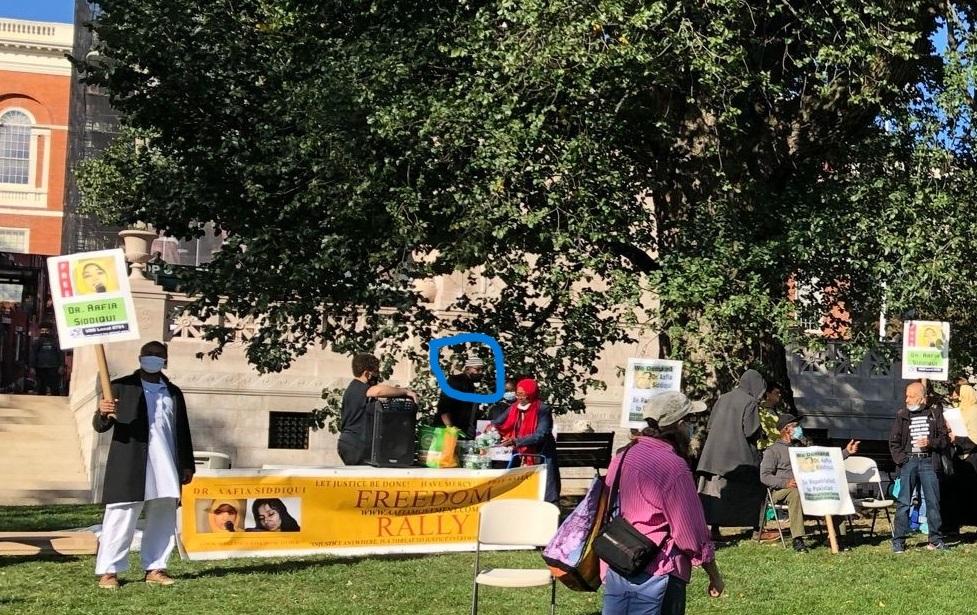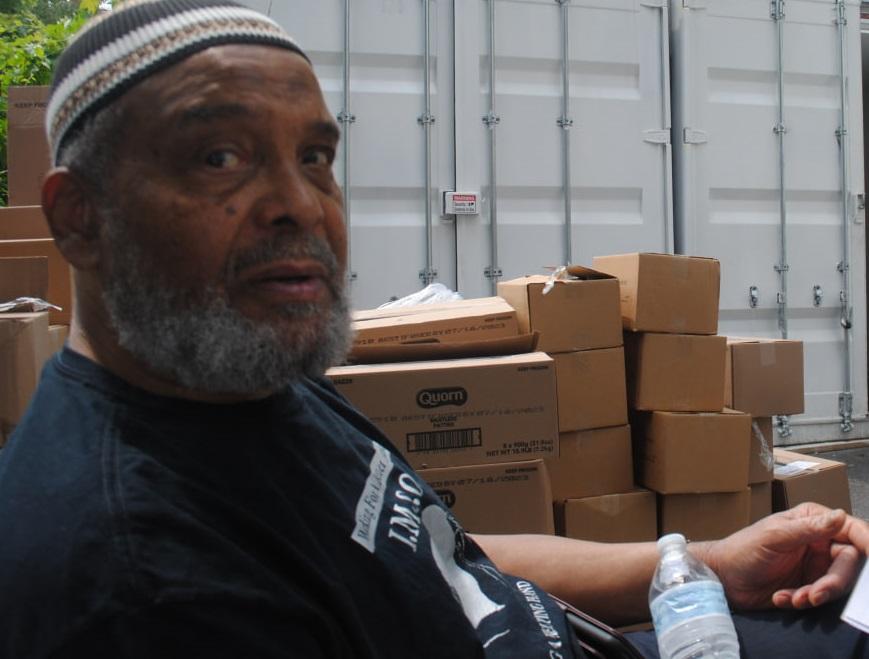American taxpayers have, over the past two years, given almost $400,000 to two non-profits led by a radical imam in Boston. Imam Abdullah Faaruuq has lionized a terrorist convicted of trying to kill FBI agents and U.S. soldiers.
Faaruuq also handed out Islamist tracts to incarcerated Muslims while serving as a chaplain in Massachusetts prisons. He once described the United States as “the land of the coward and the home of the slave.”
The same funding that the Jews get for their synagogue or the churches get for their places of worship, we’ve gotten as well.
Imam Abdullah Faaruuq.
Faaruuq is a longtime advocate for Aafia Siddiqui, a U.S. trained neuroscientist who was convicted of multiple counts of attempted murder in 2010 and is currently serving an 86-year prison sentence for her crimes. After Siddiqui’s arrest in 2008, Faaruuq downplayed the threat she posed to U.S. personnel in Afghanistan, telling interviewers from National Public Radio in New York City, “The government, I think has little to fear from a girl about five foot one and about 90 pounds.” Fifteen years later, Faaruuq offered nearly the same description of Siddiqui when speaking with Focus on Western Islamism (FWI). “She’s about five foot one, 105 pounds,” he said. “They had half a dozen military men with guns … and they couldn’t control a little girl.”
It’s an odd thing to say about a woman found with two pounds of sodium cyanide and plans for a mass-casualty attack on American soil in her possession when she was detained by Afghan police in 2008. Prior to her interrogation by American officials, Siddiqui grabbed an M4 rifle and began firing it at her questioners while shouting anti-American slogans.
In a 2010 speech about her case, the imam called upon his listeners to “grab onto this rope, grab onto the typewriter, grab onto the shovel, grab onto the gun and the sword, don’t be afraid to step out into this world and do your job.” This rhetoric prompted Americans for Peace and Tolerance to ask if Faruuq was “urging Boston-area Muslims to respond violently to the arrests of Islamic extremists.”

The following year, Faaruuq emphasized how “brave” Siddiqui was at a fundraiser in Worcester, Mass. In audio obtained by the Investigative Project on Terrorism, Faaruuq is heard to say, “They say she took up a machine gun while they held her captive … and was ready to attack her captors. What a brave woman she is and what a brave woman she continues to be.” Faaruuq also said that Siddiqui was “only guilty of trying to defend herself and if my mother was in the same place, she would have [taken] her West Indian machete and cut her way through those kafirs (non-believers).”
Faaruuq’s connection to Siddiqui dates back to when he served as a Muslim chaplain in Massachusetts prisons. According to Deborah Scroggins, author of Wanted Women: Faith, Lies & The War on Terror: The Lives of Ayaan Hirsi Ali & Aafia Siddiqui, “Aafia ordered hundreds of Islamic books in English, usually from Saudi Arabia, and Faaruuq distributed them to the prisoners he visited. Faaruuq said the books included works by the famous Egyptian Islamist [and Muslim Brotherhood ideologue] Sayyid Qutb.”
Faaruuq’s extremism hasn’t prevented nonprofits he leads from applying for — and receiving — substantial sums from American taxpayers. In June, the Massachusetts Executive Office of Public Safety and Security gave $100,000 to the Society for the Islamic Brotherhood, which operates the Praise Allah Mosque where Faaruuq serves as imam. The money came from a federal fund administered by the Department of Homeland Security.

In 2022, the state’s Executive Office of Environmental Affairs gave the Faaruuq-led Islamic-Multi Service Organization (ISMO) $290,600 to equip a food pantry that operates out of the mosque. Neither agency has responded to FWI requests for information about the grants, which are listed in a publicly searchable database maintained by the state’s comptroller.
“It’s very surprising that taxpayers are subsidizing organizations whose leader speaks in such hateful terms about America,” said Charles Jacobs, president of Americans for Peace and Tolerance. “It’s less surprising that he would be happy to take money from a government that, as his comments seem to suggest, he wants to undermine.”
Faaruuq complained that his comments about Siddiqui — which he said had “nothing to do with picking up a gun against America” — were taken out of context by his critics intent on portraying him as anti-American.
“I cannot be against this country,” Faaruuq told FWI earlier this month. “It’s the country of my birth. I love this country.” In 2022, Faaruuq told an audience in Cambridge, Mass., that America “is a terrible place” where “perversity is normalized and gay marriage is tolerated.”
In any event, Faaruuq says there is no contradiction between his harsh criticism of the U.S. and taking taxpayer funds.
“The same funding that the Jews get for their synagogue or the churches get for their places of worship, we’ve gotten as well,” he said in reference to the Homeland Security grant that was used to install security cameras at his mosque. “What am I supposed to do? Not take advantage of it?” Faaruuq told FWI.
“We got the same money everybody else got,” he said regarding the money for the food pantry. “It was because of COVID.” The mosque used the food security funds to purchase refrigeration equipment and buy a vehicle used to deliver food to people who cannot visit the food pantry in person, Faaruuq said.
Dennis Hale, a Boston College professor of political science, expressed dismay that state officials would distribute funds to nonprofits led by someone who espoused such explicit anti-Americanism in a city that was the scene of the Boston Marathon Bombing in 2013.
“”Why are officials handing out money to institutions led by radicals — in Boston, no less?” he asked. “Giving public funds to organizations led by Faaruuq legitimizes his defense of a convicted terrorist as well as his own extremist agenda.”
Dexter Van Zile is managing editor of Focus on Western Islamism.
